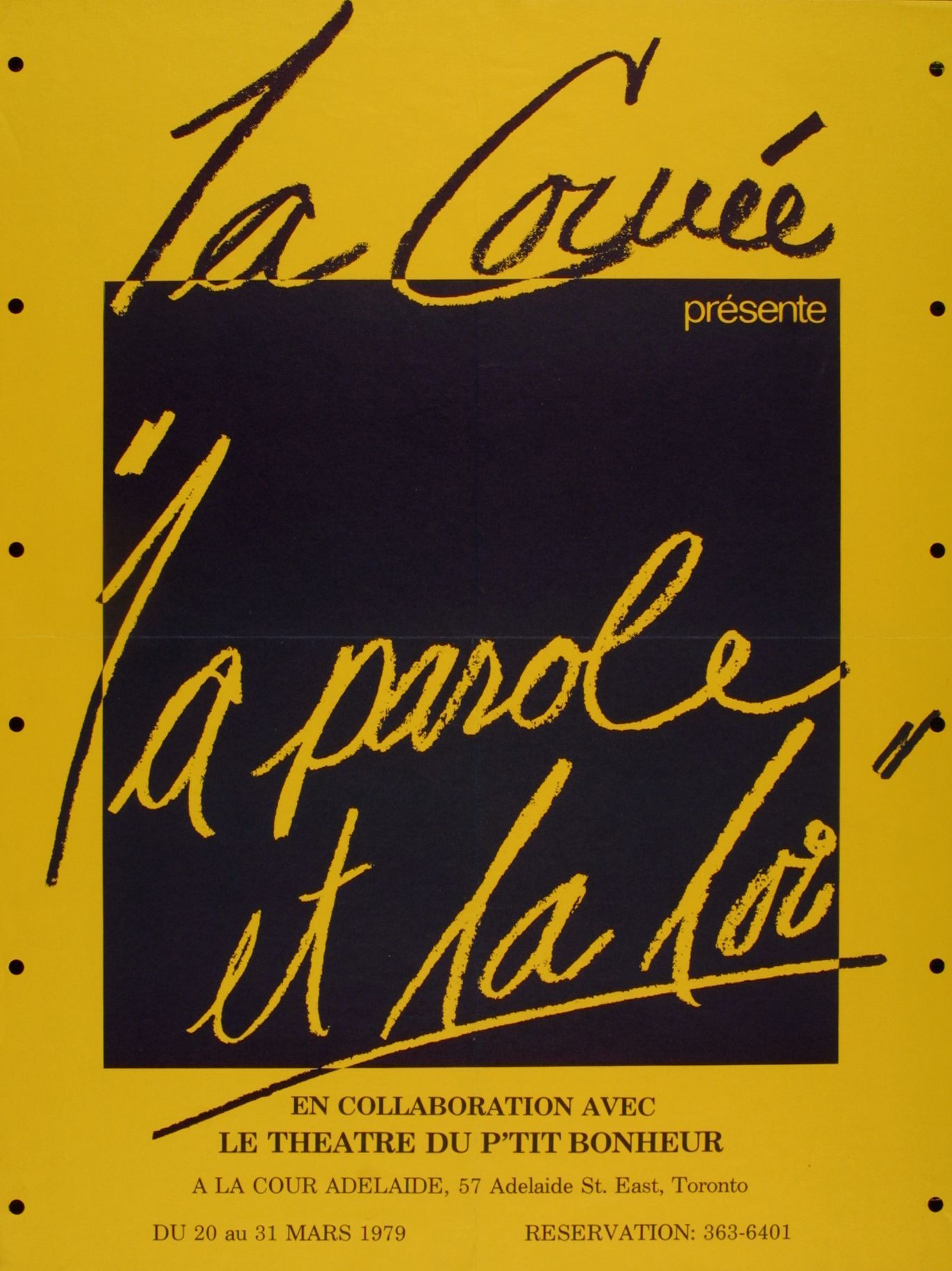The best known Théâtre d’la Corvée play is without a doubt La parole et la loi. Created in 1979, it focuses on resistance by the Franco-Ontarian community to Regulation 17, adopted in 1912 to restrict education in French in Ontario schools. In the version published by Prise de parole in 1980, the director – none other than the young Brigitte Haentjens, who goes on to leave her mark on French-language theatre in Canada – explains the significance of the project: “Everything that took place at that time and since, up to the most recent events, proves that nothing can ever be taken for granted by a minority in terms of its fundamental rights, not even when this minority is the co-founder of a country.”1 The play concludes with a reminder of more recent crises shaking the Franco-Ontarian community and calling for mobilization – for example, the C’est l’temps movement and the occupation of the Sturgeon Falls High School.
La parole et la loi is not, however, a realistic work; it presents facts by mixing song, masks, humour and irony. For example, in a scene titled “L’enterrement”, actors interrupt the performance to hold a so-called daily ceremony. One of the characters, M. Loyal, explains: “It is the time when, every day, we try to eliminate our Franco-Ontarian minority complex, which is always there, hot on our heels.”2 During this funeral, the actors divest themselves of symbols representing the Franco-Ontarian community (e.g., a frog, a plaid shirt, a can of pea soup) by throwing them into a large box.
La parole et la loi is the creation of a collective, who has taken over the Théâtre d’la Corvée, founded by a first group of artists a few years earlier. They include Catherine Caron, Daniel Chartrand, Robert Colin, Francine Côté, Madeleine LeGuerrier and Marc O’Sullivan. The play is so successful that, in the early 1980s, it goes on a national tour. Prise de parole has also published numerous re-editions of the play.
